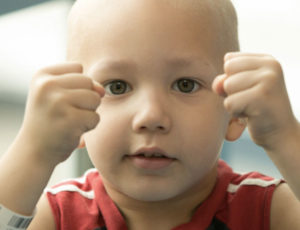Leave a Comment:
2 comments
[…] Whole Brain Radiation – Pediatric Chemobrain? […]
Reply[…] Whole Brain Radiation for Pediatric Acute Lymphoblastic Leukemia- Pediatric Chemobrain? […]
Reply
Learn about conventional, complementary, and integrative therapies.
Dealing with treatment side effects? Learn about evidence-based therapies to alleviate your symptoms.
Click the orange button to the right to learn more.
Pediatric chemo brain? We have all heard the saying that “the cure is worse than the disease.” Well, when considering pediatric Acute Lymphoblastic Leukemia (ALL) therapies, this saying resonates.
I can assure you that the side effect called chemobrain is one of the side effect that the saying is referring to.
 If my child was diagnosed with ALL, I’m sure I wouldn’t think about the long-term effects of his/her therapies. Now that I’ve lived with chemobrain however, I can tell you that this debilitating adverse event must be a part of the care of every patient.
If my child was diagnosed with ALL, I’m sure I wouldn’t think about the long-term effects of his/her therapies. Now that I’ve lived with chemobrain however, I can tell you that this debilitating adverse event must be a part of the care of every patient.
The study cited below is attempting to measure cognitive outcomes (how well kids’ brains work) with “higher intensity” chemo vs. “lower intensity chemotherapy” in pediatric ALL patients. I’m not sure what is considered higher intensity vs. lower intensity but the study seems to indicate that less chemo is better for kids brains. Keep in mind, however, that the authors add that high risk ALL is tough and chemo alone, as therapy, “is not without risks.”
One of the long-term side effects of my aggressive conventional therapy from ’95-’97 included high-dose chemotherapy. Cognitive damage aka chemobrain from that treatment has haunted me ever since. Keep in mind that the aggressive conventional therapies gave me short-lived remissions. I am alive today because of evidence-based non-conventional therapies.
I am both a cancer survivor and cancer coach. There are evidence-based non-conventional therapies that studies show can enhance chemo while reducing collateral damage.
To learn more about those evidence-based therapies that are shown to improve the efficacy of conventional therapies while reducing toxicity, scroll down the page, post a question or comment and I will reply ASAP.
Thank you,
David Emerson
“Background- Treatment of acute lymphoblastic leukemia (ALL) has included the use of prophylactic cranial irradiation in up to 20% of children with high-risk disease despite known cognitive risks of this treatment modality.
Methods- Patients enrolled on the St Jude ALL Total Therapy Study XV, which omitted prophylactic cranial irradiation in all patients, were assessed 120 weeks after completion of consolidation therapy,using a comprehensive cognitive battery. χ2 analysis was used to compare the percentage of below-average performers among the entire ALL patient group to the expected rate based on the normative sample.
Results- Overall, the ALL group had a statistically significantly higher risk for below-average performance on a measure of sustained attention but not on measures of intellectual functioning, academic skills, or memory. Patients given higher intensity chemotherapy were at greater risk for below-average performance compared with those given lower intensity therapy on measures of processing speed and academic abilities and had higher parent-reported hyperactivity and learning problems.
Conclusions Omitting cranial irradiation may help preserve global cognitive abilities, but treatment with chemotherapy alone is not without risks. Caregiver education and development of interventions should address both early attention deficits and cognitive late effects.”
“Cancer-associated cognitive impairment, commonly known as chemo brain, is an adverse effect of cancer and its treatment that survivors experience to varying degrees. Symptoms generally include attention and concentration difficulties, reduced processing speed and executive function, and compromised short-term memory.1 Chemo brain affects more than one-third of all survivors of childhood cancers.
Cognitive dysfunction may arise at or soon after a cancer diagnosis; however, deficits may also arise several years later. Chemotherapy was thought to be the only cause of chemo brain, but research suggests that several types of cancer treatment, and even the cancer diagnosis itself, can cause these impairments.1 Children with cancer diagnosed at a young age appear to experience more chemo brain complications than any other patient group. As the childhood cancer survivor population increases, awareness of the potential long-term effects of cancer and its treatments is important…2
[…] Whole Brain Radiation – Pediatric Chemobrain? […]
Reply[…] Whole Brain Radiation for Pediatric Acute Lymphoblastic Leukemia- Pediatric Chemobrain? […]
Reply